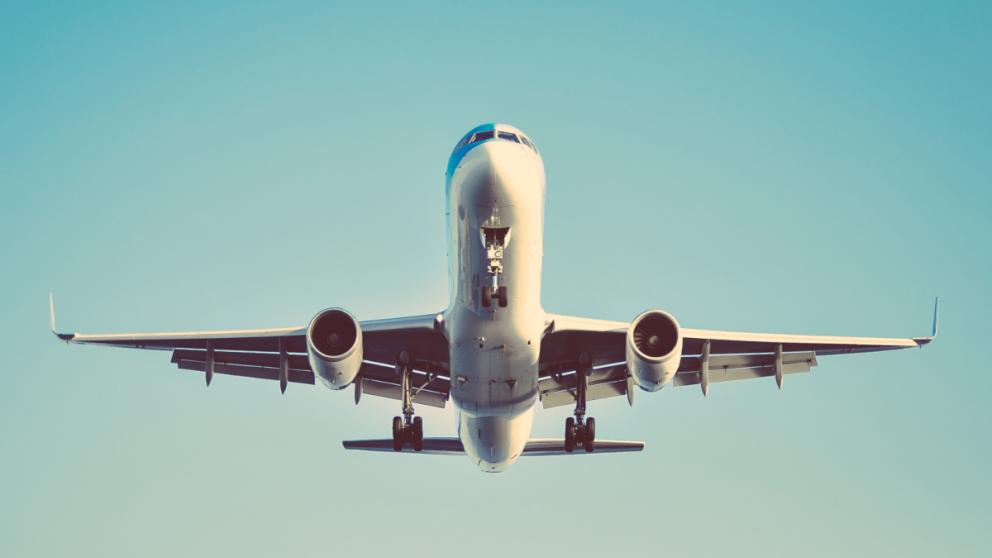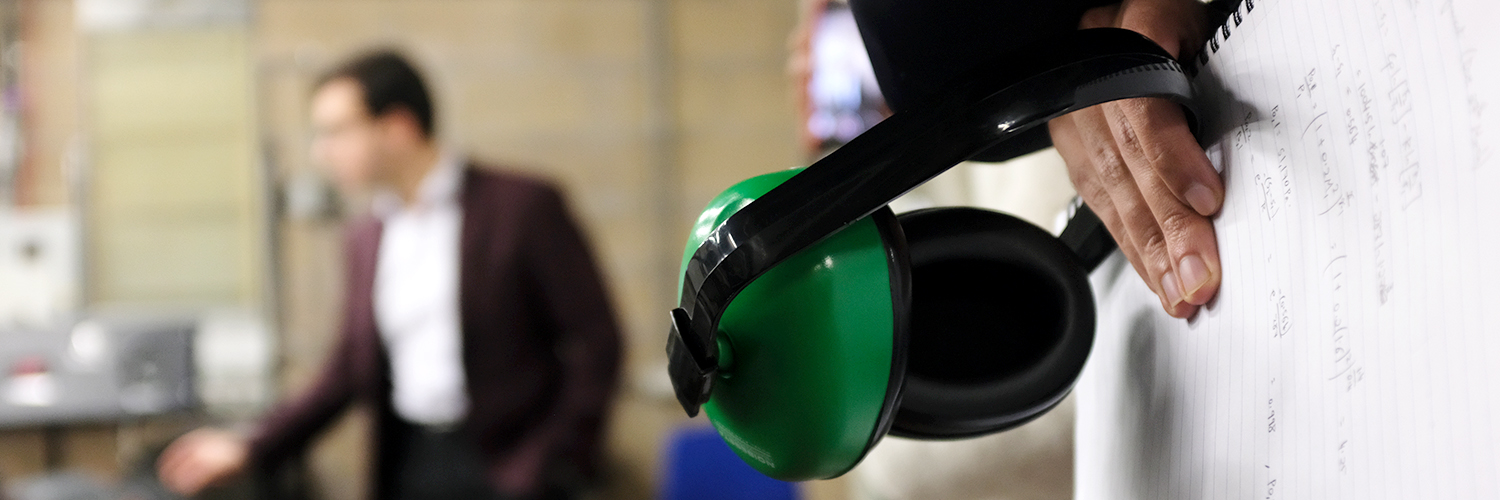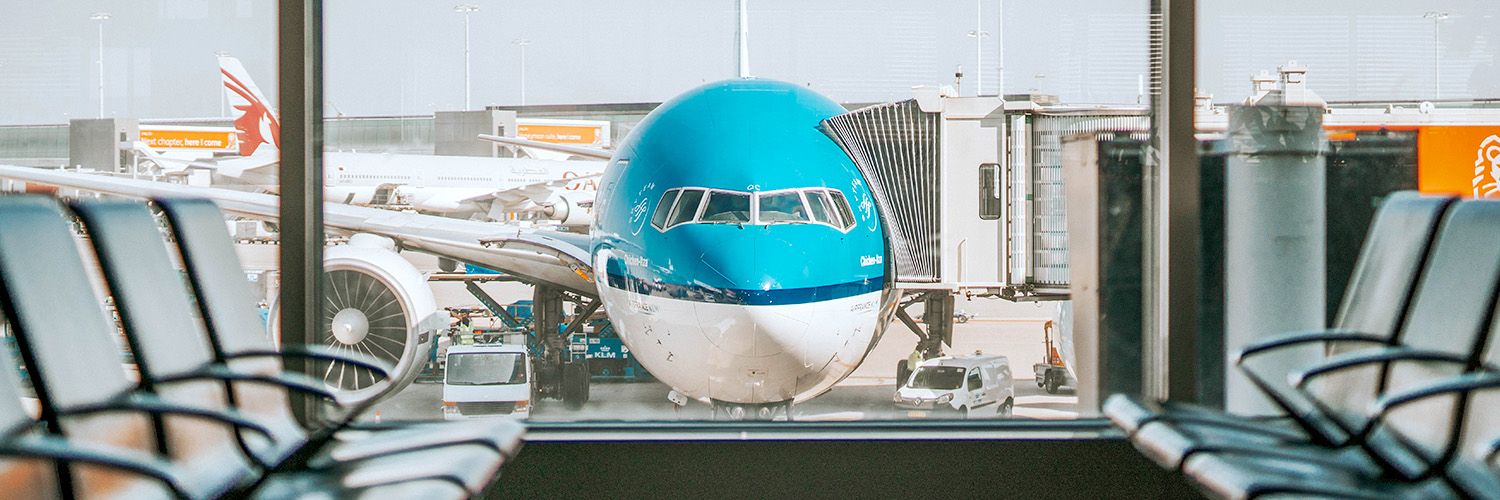
Aerospace Engineering
Full-time
Part-time
One year
32 month
September 2026
In a nutshell
This programme has now closed to international applications for January 2026
This course gives you the advanced technical, computational and practical skills needed to succeed in modern aerospace engineering, while also exploring how aerospace systems interact with society, the environment and global operations. You’ll study core areas such as aerodynamics, structures, and systems engineering, alongside the wider context in which aerospace technology is designed, regulated and operated.
What makes this course different is its strong emphasis on practical, industry-relevant learning. You’ll work with industry-standard software, carry out wind-tunnel testing using dedicated aerospace laboratories, and take part in a real aircraft flight test engineering field trip, where you’ll collect and analyse performance data on board an aircraft.
You’ll also gain experience in UAV design and systems engineering, applying theory to real design challenges and presenting your work in a professional context. Throughout the course, you’ll be supported by an experienced and approachable teaching team in a highly inclusive learning environment, with opportunities to engage with industry through projects and guest input.
Based in Greater Manchester, one of the UK’s key aerospace and engineering hubs, this course is professionally accredited and prepares you for careers across aerospace and advanced engineering, or for further postgraduate study in a rapidly evolving industry.
International applicant? Please check international intakes for the latest information and application dates.
Start your MSc Aerospace Engineering study journey
Register for our next Open Day where you can learn more about the course, tour our new engineering facilities and meet the tutors
You will:
- Apply advanced aerodynamics, structures, systems, noise and vibration knowledge to real aerospace engineering problems
- Use industry-standard computational tools such as ANSYS Fluent/Mechanical and MATLAB/Simulink
- Gain hands-on experience with wind tunnels, experimental facilities and real aircraft flight test data
- Design, build and evaluate aerospace systems, including UAVs, using professional engineering methods
- Understand how aerospace engineering interacts with society, sustainability, regulation and operations
- Develop professional, leadership and communication skills aligned with industry and accreditation standards
students accepted
This is for you if...
You want to specialise in aerospace engineering across aerodynamics, structures, systems, and operations
You want this course to combine computational modelling, experimental testing, and real engineering data
You have an engineering background and want to progress into advanced technical or systems-focused roles
You want to understand how aerospace engineering interacts with society, sustainability, and global operations
You want to learn in a supportive, inclusive environment with strong industry engagement
You want an accredited MSc supporting Chartered Engineer progression and careers in aerospace or advanced engineering
All about the course
This course provides advanced postgraduate training in aerospace engineering, building on undergraduate-level knowledge to prepare you for roles requiring high-level technical expertise, professional judgement, and systems-level thinking. It is designed to support progression towards Chartered Engineer (CEng) status and aligns with the Engineering Council’s Accreditation of Higher Education Programmes (AHEP) requirements.
You will develop in-depth knowledge across key aerospace domains including aerodynamics, structures, systems engineering, noise and vibration, and aerospace operations, while strengthening your ability to integrate mathematics, science, computation, and engineering practice. Alongside technical depth, the course emphasises the wider context of aerospace engineering, including sustainability, regulatory frameworks, operational considerations, and the societal responsibilities of engineers.
Learning is informed by strong links with the aerospace and aviation industry, supported by professional collaborations. These connections enhance teaching through applied projects, real engineering data, and industry engagement.
The programme can be studied flexibly:
- PGCert: 60 credits
- PGDip: 120 credits
- MSc: 180 credits
This structure supports full-time, part-time, and staged study routes, and prepares graduates for careers in aerospace engineering, advanced engineering roles, or further postgraduate research.
Advanced CFD
This module offers an in-depth introduction to Computational Fluid Dynamics (CFD), focusing on practical engineering applications using industry-standard software. It covers the governing equations of fluid flow, including laminar and turbulent models, with emphasis on meshing, convergence analysis, and turbulence modelling. Analytical and computational techniques are applied to complex problems, highlighting their limitations. Technical literature is critically evaluated to support modelling strategies. Communication of engineering outcomes is developed through reports and presentations. The module also encourages self-directed learning, supports continuous professional development (CPD), and introduces advanced topics and current research trends relevant to CFD and thermal-fluid sciences.
Advanced FEA
This module offers an in-depth introduction to Finite Element Analysis (FEA), focusing on practical engineering applications using industry-standard software. The syllabus introduces students to essential modelling techniques used in real-world engineering practice and professional workflows. The module utilises various element types, including beam elements, thin shell elements, and emphasises the importance of selecting appropriate modelling strategies. You will also learn about element compatibility issues and investigate advanced topics such as modal analysis enabling you to analyse natural frequencies, while transient analysis under dynamic loading conditions provides insight into time-dependent structural responses. By the end of the module, you will have acquired skills to both produce and interpret FEA results.
Plus two choices from the following four elective module options:
Advanced Aerodynamics
This module introduces the numerical methods used to analyse complex aerodynamic flows. You will explore a range of numerical solution approaches to the flow equations, including finite-difference and finite volume methods, along with simplified methods, which allow aerodynamicist to obtain fast, but less accurate results. This module also covers the fundamentals of turbulence modelling, introducing the main model types and their applications. You will work with existing and new numerical solvers to approach complex aerodynamic flows and learn the importance of validation against experimental data.
Advanced Aerospace Structures
This module looks at the theories and processes associated with modern aircraft structures. The design of composite structures occupies a central role, with a composite design and analysis assignment being used to underpin the learning process. In addition, techniques used with the assembly of large aircraft structures are also taught.
Flight Handling Qualities and Flight Testing
In this module, you will explore the principles of aircraft performance, flight dynamics, and handling qualities assessment in the context of modern flight testing and certification. You will examine steady and manoeuvring flight, airfield performance, and regulatory requirements for flying qualities. Emphasis is placed on the role of flight testing in evaluating aircraft behaviour and demonstrating compliance with industry standards. Working in teams, you will produce a comprehensive technical report based on flight test data analysis, developing your ability to communicate complex engineering conclusions clearly and professionally in line with current certification and reporting practices.
Airline and Airport Operations
In this module, you will develop a comprehensive understanding of sustainable airline and airport operations, examining how efficiency, environmental responsibility, and security risks intersect across the industry. You will explore flight operations, passenger identification, check‑in and boarding, cargo handling, catering, customer service, and the management of unruly passengers, alongside crisis response and humanitarian support. By analysing operational challenges and proposing solutions aligned with economic, social, and environmental sustainability, you will strengthen your ability to contribute to resilient, secure, and future‑focused aviation operations. This integrated skill set directly enhances your employability in an increasingly sustainability‑driven sector.
Engineering and Society
In this module, you will examine the societal, professional, and organisational contexts of engineering practice, with emphasis on the full life-cycle of projects and processes. You will develop skills in project and change management, quality systems, risk and security mitigation, and ethical decision-making informed by professional codes. The module highlights sustainability, EDI, and intellectual property rights within engineering solutions. Through a group design project, you will apply engineering technologies, evaluate environmental and societal impacts, and reflect on team effectiveness. This experience will support your ability to lead and manage complex problems responsibly in diverse and interdisciplinary professional environments.
Aircraft Noise and Vibration
This module provides an in-depth understanding of aircraft noise and vibration, focusing on the physical principles of aeroacoustics and the key noise sources in modern aircraft. You will explore propulsion and airframe noise mechanisms, sound propagation, and the impact of atmospheric conditions. The module also covers numerical simulation techniques of noise sources, regulatory frameworks, and strategies for noise control. Aircraft cabin noise and vibration issues are addressed alongside practical methods for analysis and mitigation. Ideal if you are aiming to work in aerospace, environmental acoustics, or noise control engineering, this module combines theoretical knowledge with industry-relevant skills and practices.
Aerospace Systems Design
In this module you develop in-depth knowledge about and gain practical experience on the design and manufacture of small electric-powered Unmanned Aerial Vehicle (UAV) platforms. You will design based on a set of mission parameters, following the identification of a market niche, and in accordance with Civil Aviation Authority (CAA) guidelines and requirements. A key focus of this module is design for manufacture and hence the design will be built and tested at the end of the module.
Dissertation
The dissertation is your opportunity to exercise what you have learnt in a research (student-focused) environment. As part of the assessment, you will conduct research under the direction of an academic supervisor, which will involve a range of high-level coordinated academic and practical work.
We take a flexible approach to our course delivery that promotes diversity and inclusivity and provides a blended learning experience, which will vary to meet specific programme requirements. This learning time includes formal lectures and interactive activities such as seminars, tutorials, practical sessions, laboratory and studio learning. Smaller classes may be used to support collaborative activities such as project and group work and presentations. A range of different assessments and feedback is offered to meet the needs of both our diverse student body and specific subject needs.
Our postgraduate taught courses are normally made up of 30 credit modules which are equal to 300 hours of learning time, or 15 credit modules which are equal to 150 hours of learning time. A Master’s degree typically comprises 180 credits, a PGDip 120 credits, and a PGCert 60 credits.
Please note that exact modules and content offered may vary in order to keep content current and, for courses that offer optional modules, may depend on the number of students selecting particular options. When accepting your offer of a place to study on a programme with optional modules, you should be aware that optional modules may not all run each year. Your tutor will be able to advise you as to the available options on or before the start of the programme. Whilst the University tries to ensure that you can undertake your preferred options, it cannot guarantee this.
School of Science, Engineering and Environment
Rising to the challenge of a changing world, our postgraduate courses are designed to shape the next generation of urbanists, scientists, engineers, consultants and leaders.
Driven by industry, and delivered by supportive programme teams, you can develop the knowledge and skills to take your career potential further.
Facilities
As an aerospace engineering student, you will learn in specialist laboratories that support modern engineering education, applied research, and hands-on experimentation. These facilities allow you to develop practical skills alongside strong theoretical understanding, using equipment that reflects current and emerging industry practice. You will have access to the Morson Makerspace, a modern additive manufacturing and digital fabrication facility, and the GMIoT workshop, supporting design, prototyping, and testing activities.
You will also use a wide range of dedicated engineering laboratories, including:
- Mechanical and Aeronautical laboratory with wind tunnels, flight simulators, gas turbines, forced convection rigs, and wind testing facilities.
- Control laboratory equipped with control rigs and electronic systems.
- Light Structures laboratory for material strength, hardness, and structural deformation testing.
- Dynamics laboratory with equipment for vibration and dynamic response analysis.
- Composites laboratory focused on manufacturing composite structures, including carbon fibre.
During your Dissertation, you are encouraged to make full use of these facilities to support experimental, design, and applied research work.
Staff
This programme is delivered by qualified and experienced academic staff at the forefront of their fields of expertise who keep up to date with recent research, as well as with current and emerging industry trends, as well as by experienced industry professionals.
Staff members have done teaching and research and they are members of the professional bodies such as RAeS and IMechE.
What about after uni?
Employment
This course prepares you for a wide range of careers across the aerospace and advanced engineering sectors. Graduates typically move into technical roles such as aerospace engineer, aerodynamics engineer, systems engineer, flight performance engineer, CFD or simulation engineer or UAV systems engineer.
The strong emphasis on computational modelling, experimental testing, systems thinking and real engineering data also supports progression into design engineering, research and development, technical consultancy, and engineering analysis roles. Some graduates choose to continue into doctoral research or specialist postgraduate study, particularly in aerodynamics, systems engineering, or sustainable aviation.
You’ll be well suited to industries including aerospace and aviation, defence, advanced manufacturing, transport, energy, and engineering consultancy, as well as emerging areas such as uncrewed aerial systems and sustainable aircraft technologies.
Graduates from aerospace-related programmes at Salford have gone on to work for major aerospace manufacturers, suppliers, operators, research organisations, and government bodies, as well as small and medium-sized enterprises and start-ups, both in the UK and internationally. The programme’s professional accreditation also supports long-term progression towards Chartered Engineer (CEng) status, opening pathways to senior technical and leadership roles over time.
Further study
You might also choose to take your subject interest further with postgraduate research. Our Innovation and Research Centre (SIRC) is home to PhD and Research Master’s opportunities exploring the advancement of engineering, robotics and technology for societal progress and economic growth.
Explore our Doctoral School to learn more about research training, support and opportunities.
What you need to know
Applicant profile
This MSc Aerospace Engineering is suitable for ambitious graduates and early- to mid-career professionals, both home and international, with strong analytical skills and an interest in advanced aerospace engineering. You will typically have a background in aerospace, aeronautical, mechanical or a closely related engineering discipline, or equivalent relevant industry experience.
This course is designed for those who want to deepen their technical expertise and progress into specialist roles in areas such as aerodynamics, aerospace systems, UAVs, simulation and computational engineering. It is also appropriate if you are seeking to broaden your understanding of how aerospace engineering interacts with sustainability, regulation, operations and society, or if you are considering progression into research or technical consultancy.
You will thrive on this course if you enjoy problem-solving, applying theory to real engineering challenges, and working with advanced computational and experimental tools. A strong interest in emerging technologies and responsible engineering practice will help you make the most of the programme.
English language requirements
All of our courses are taught and assessed in English. If English is not your first language, you must meet our minimum English language entry requirements. An IELTS score of 6.0 (no element below 5.5) is proof of this, however we do accept a range of equivalent qualifications.
Read more about our English language requirements, including information about pathways that can help you gain entry on to our degree courses. If you do not have the English language requirements, you could take our Pre-Sessional English course.
International applications
Please check international intakes for the latest information and application dates.
Undergraduate degree
- A 2:2 degree or above in aerospace / aeronautical engineering, mechanical engineering, or a closely related engineering discipline (such as mechatronics, control engineering, automation, or robotics), or a relevant physical science such as physics or mathematics.
International student entry requirements
We accept qualifications from all around the world. Find your country to see a full list of entry requirements.
Accreditation of Prior Learning (APL)
We welcome applications from students who may not have formal/traditional entry criteria but who have relevant experience or the ability to pursue the course successfully.
The Accreditation of Prior Learning (APL) process could help you to make your work and life experience count. The APL process can be used for entry onto courses or to give you exemptions from parts of your course.
Two forms of APL may be used for entry: the Accreditation of Prior Certificated Learning (APCL) or the Accreditation of Prior Experiential Learning (APEL).
For more information or enquires about this scheme, please contact: admissionssee-pgt@salford.ac.uk.
Learn more about the University of Salford Alternative Entry Scheme.
How much?
For students beginning their studies in January 2026, please see fees for 2025/26.
| Type of study | Year | Fees |
|---|---|---|
| Full-time home | 2025/26 | £10,350 per year |
| Full-time international | 2025/26 | £17,000 per year |
| Full-time home | 2026/27 | £10,620 per year |
| Full-time international | 2026/27 | £17,520 per year |
| Part-time | 2026/27 | Calculated on a pro rata basis |
Additional costs
You should consider further costs which may include books, stationery, printing, binding and general subsistence on trips and visits.
International student scholarships
If you are a high-achieving international student, you may be eligible for one of our scholarships. Learn more about our latest international scholarships.


